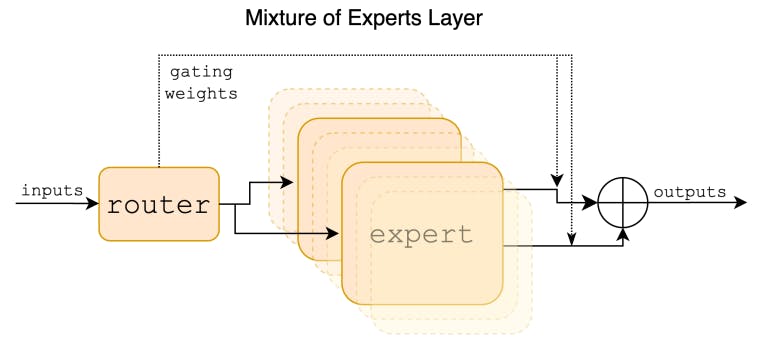visit
Mixtral—a Multilingual Language Model Trained with a Context Size of 32k Tokens by@textmodels
Mixtral—a Multilingual Language Model Trained with a Context Size of 32k Tokens
by Writings, Papers and Blogs on Text ModelsOctober 18th, 2024
Too Long; Didn't Read
Mixtral is a sparse mixture of experts model (SMoE) with open weights, licensed under Apache 2.0. Mixtral outperforms Llama 2 70B and GPT-3.5 on most benchmarks. It is a decoder-only model where the feedforward block picks from 8 distinct groups of parameters.Authors:
(1) Albert Q. Jiang; (2) Alexandre Sablayrolles; (3) Antoine Roux; (4) Arthur Mensch; (5) Blanche Savary; (6) Chris Bamford; (7) Devendra Singh Chaplot; (8) Diego de las Casas; (9) Emma Bou Hanna; (10) Florian Bressand; (11) Gianna Lengyel; (12) Guillaume Bour; (13) Guillaume Lample; (14) Lélio Renard Lavaud; (15) Lucile Saulnier; (16) Marie-Anne Lachaux; (17) Pierre Stock; (18) Sandeep Subramanian; (19) Sophia Yang; (20) Szymon Antoniak; (21) Teven Le Scao; (22) Théophile Gervet; (23) Thibaut Lavril; (24) Thomas Wang; (25) Timothée Lacroix; (26) William El Sayed.Table of Links
2 Architectural details and 2.1 Sparse Mixture of Experts
3.1 Multilingual benchmarks, 3.2 Long range performance, and 3.3 Bias Benchmarks
6 Conclusion, Acknowledgements, and References
Abstract
We introduce Mixtral 8x7B, a Sparse Mixture of Experts (SMoE) language model. Mixtral has the same architecture as Mistral 7B, with the difference that each layer is composed of 8 feedforward blocks (i.e. experts). For every token, at each layer, a router network selects two experts to process the current state and combine their outputs. Even though each token only sees two experts, the selected experts can be different at each timestep. As a result, each token has access to 47B parameters, but only uses 13B active parameters during inference. Mixtral was trained with a context size of 32k tokens and it outperforms or matches Llama 2 70B and GPT-3.5 across all evaluated benchmarks. In particular, Mixtral vastly outperforms Llama 2 70B on mathematics, code generation, and multilingual benchmarks. We also provide a model finetuned to follow instructions, Mixtral 8x7B – Instruct, that surpasses GPT-3.5 Turbo, Claude-2.1, Gemini Pro, and Llama 2 70B – chat model on human benchmarks. Both the base and instruct models are released under the Apache 2.0 license.
Code: //github.com/mistralai/mistral-src
Webpage: //mistral.ai/news/mixtral-of-experts/
1 Introduction
In this paper, we present Mixtral 8x7B, a sparse mixture of experts model (SMoE) with open weights, licensed under Apache 2.0. Mixtral outperforms Llama 2 70B and GPT-3.5 on most benchmarks. As it only uses a subset of its parameters for every token, Mixtral allows faster inference speed at low batch-sizes, and higher throughput at large batch-sizes.
This paper is under CC 4.0 license.
L O A D I N G
. . . comments & more!
. . . comments & more!






























